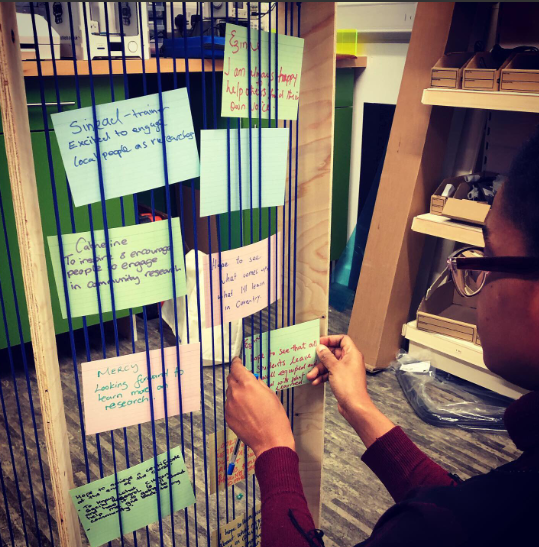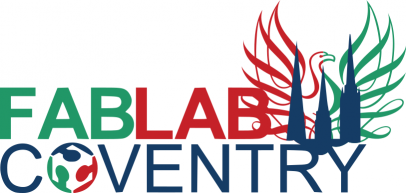

Coventry University is providing *free social science research training and qualifications for people in the West Midlands
Learning how to conduct social research out in local communities.
In this *free Citizen Social Science course, we can help you to develop your social research skills. Coventry University is offering a free nationally-recognised qualification in Citizen Social Science and providing training and practical experience in community research for anyone living, working or studying in Birmingham, Coventry and Wolverhampton.
Each short course is delivered online by two expert Coventry University researchers with lots of experience in community research in the West Midlands.
The training is free for anyone (over-18) wanting to learn how to be a social science researcher and interested in learning how to research through working on a small piece of research on a topic that matters to them.
Trainee researchers attend the course on Zoom for a total of 4 days, with option support and mentoring in between. Our graduates receive a nationally-recognised award in Employability and Development Skills from Open College Network West Midlands by completing two modules in Citizen Social Science and Conducting Peer Research.
The courses are great for anyone new to and interested in research, those wanting to expand their CVs, anyone looking to work in public service or the community and voluntary sector or those just interested in learning more about a particular issue in their local area.
You will be part of a small group of people from the West Midlands all looking to research into community issues affecting them. The course is open to all and there are no set topics to research, but we are particularly interested in hearing from migrants, refugees and those interested in migrant community issues – because we are migration researchers ourselves!
What do I get from the course?
- An accredited qualification in Employability and Development Skills (Open College Network Level2)
- Training on designing and conducting community research
- One-2-one support and supervision in conducting a piece of research on something that matters to you
- The chance to meet and learn with a range of people from your area
- Because part of our MiFriendly Cities team
- Reasonable travel expenses for conducting the research are paid for
Is it really free?
Yes, Coventry University has funding as part of the MiFriendly Cities programme to provide Citizen Social Science training to people in Birmingham, Coventry and Wolverhampton.
MiFriendly Cities is a £4m programme delivered by a partnership of charities, local authorities and businesses supporting migrant integration in West Midlands cities. One aim of the programme is to bring together migrants, refugees and people born in the UK to enhance the experience and integration of migrants in the three cities. Another is to increase the amount of research on community issues undertaken by people living, working and studying in those areas.
Can I take part?
If you are over 18 and live, work or study in Birmingham, Coventry and Wolverhampton, then yes. Our only caveats are:
- there are limited places available on our courses, so please fill the contact form in quickly if you are interested
- aligning with the ambition of MiFriendly Cities above, we are looking for a mix of migrants and non-migrants on the course
How is it delivered?
The courses are entirely COVID-secure. You can take place from home or wherever you are. Delivery is entirely remote, online via Zoom.
How the course runs:
- Training stage:
You’ll join us for two days of initial training covering the basics of community research, designing your project and discussions on community issues that matter to you and your group. - Research and Mentoring stage:
You then trial your research skills, working either independently or within a small group on a piece of primary or secondary research. Our expert researchers will be there to support you throughout, with optional mentoring and support sessions available when you need them, as often as required. - Findings stage:
After you have done your small piece of research, you will return to us for two final days. We will welcome the group back for some final training and a chance to share your research findings, hear about the progress and experiences of the group and to reflect on how everyone found the process. We will then look at how your research skills might be used to support your future careers or interests and can provide additional support and guidance afterwards for anyone looking to stay involved in community research after the course.
How is it assessed and how difficult is it?
You will complete a straightforward workbook as you progress through the different qualification stages, with support from our trainers. That is then used to award the qualification. 100% of those completing our courses so far have been awarded the qualification.
The qualification is the equivalent to a GCSE Grade B, but we tailor each course to the abilities of those in the room, from complete beginners who have never thought about research before to those looking to undertake more advanced research or go onto further study (such as a university degree)
Who delivers the course?
The two researchers leading the course are Tom Fisher and Dan Range.
Tom and Dan are community researchers and trainers based at Coventry University’s Centre for Trust, Peace and Social Relations. They have each been conducting community research for over 10 years and have worked on a wide variety of themes, from poverty and austerity to migration, social cohesion and violent extremism. Dan and Tom both teach on the Centre’s Masters degree programmes and are regularly commissioned by governments and charities in different parts of the world to conduct research on how policy affects local communities.
Outside of the University, Tom is a longstanding trustee of the Coventry Refugee and Migrant Centre and Dan is Chair of Governors at an academy school in Dartford, Kent.
They are both currently embedded as Assistant Professors, evaluating the MiFriendly Cities programme and look forward to supporting our latest intake of Citizen Social Scientists in their learning and research.
